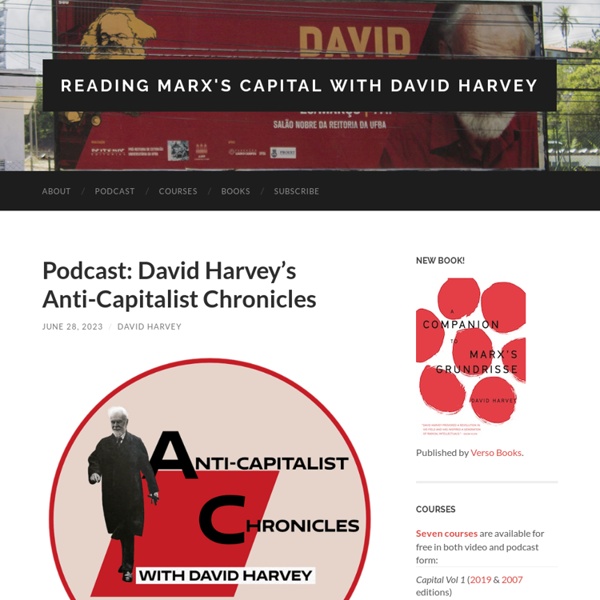Zoom
Trash
Related:



Erik Olin Wright Books, Recent Articles, Selected publications, Interviews, Unpublished Manuscripts, The Real Utopias Project, Courses, Economic Sociology Program, CV, Recipes, Sociology home page, Autobiographical essay, Transformations of Job Structure Project, 1980 Class Structure Survey, Favorite Audiobooks, Kapitalistate (Journal 1973-1983), Links Videos Selected Power Point Presentations Annual Weekend Seminar Retreats Courses (Fall 2013): Soc.929. Real Utopias Seminar. Syllabus Course Page Soc.621. Real Utopias: Non-academic Miscellanea: Audio Stories & Lectures, Chess Perversions & Other Diversions, The Chess Game (animated film) American Sociological Association President page: PODCASTS for: Sociology 125. Principal Publications: books 1. 2. 3. 4. 5. 6. 7. 8. 10. 11. Selected papers (pdf files) Other papers available under Selected Publications "The Class Analysis of Poverty," International Journal of Health Services, vol. 25:1, 1995, pp.85-100. Debate in this journal over this paper: Interviews:
Finanzkrise: So kommen wir da raus | Wirtschaft Vier Wege aus der Krise in Euro-Land Speichern Drucken Twitter Facebook Google + Kriege und Krisen – schon immer haben sie die Schuldenberge wachsen lassen. Schuldenschnitt: Einer jüdischen Tradition zufolge sollen alle 49 Jahre alle Schulden gestrichen werden. Anzeige Aber nur auf den ersten Blick. Daraus folgt, dass automatisch Vermögen vernichtet wird, wenn die Schulden gestrichen werden und die Staatsanleihen ihren Wert verlieren. Das globale Finanzsystem dürfte die massenhafte Entwertung von Vermögenstiteln allerdings nicht verkraften. Eine mildere Form des Staatsbankrotts ist die sogenannte finanzielle Repression.
Mustafa Sönmez Konservative Kapitalismus-Kritik Es ist eine kaum überwindbare Herausforderung für derzeit lebende Zeitgenossen, die Verschiedenartigkeit der uns umgebenden und auf uns einwirkenden, von unseren Gesellschaften hervorgebrachten und diese wandelnden Entwicklungen zu erkennen. In den tiefgreifenden und temporeichen Dynamiken, die uns und unsere Leben heute prägen, gehen kurzfristig-flüchtige, mittelfristig-episodische als auch langfristig-anhaltende Veränderungsprozesse unauflösbare Verbindungen ein. Nur, wenn es gelingt, diese Ebenen geistig auseinanderzuhalten, können wir diesen nüchternen Befund tätigen: Die sogenannten modernen Gesellschaften sind vom "Kapitalismus", der nichts anderes ist als ein mächtiger gesellschaftlicher Mechanismus, in eine prekäre Lage getrieben worden. Möglich wurde dies allein deshalb, weil politische Steuerung oder Gestaltung, politische Zähmung oder Begrenzung, politische Kontrolle oder Korrektur zusammenbrachen. Solch klare Worte mögen Schirrmacher nicht über die Lippen kommen.
gramsci society Hat die Linke tatsächlich Recht? Seit die "freien Märkte" weltweit im Aufruhr sind, die Politik mit ihrer Bewältigung und vor allem der ihrer eigenen finanzpolitischen Verfehlungen zunehmend überfordert scheint, ist nichts mehr so, wie es scheint. Sogar die Bürgerlichen und Wertkonservativen beginnen an der Politik, an ihrem Weltbild und ihren einst gültigen Wirtschaftsdogmen zu zweifeln. Anzeige "Empört Euch!", rief der greise Stéphane Hessel vor ein paar Monaten seinen französischen Landsleuten zu. Brecht die Macht des Geldes, stoppt den Ausverkauf unserer Demokratie, stellt ihre Werte und Tugenden wieder her, war dort zu lesen. "Bürger, auf die Barrikaden!" Verrat konservativer Ideale Knapp eine Dekade später sind vom "passiven und aktiven Widerstand", den Baring prognostizierte, außer einem gigantischen Schuldenberg gerade mal ein unsinniger Streit um einen Bahnhof, brennende Autos in Berlin und das politische Taumeln in der Euro-Krise übrig geblieben. Den jüngsten Sermon hat gerade Frank Schirrmacher losgelassen.
| Telepolis Mit den Turbulenzen an den Finanzmärkten, in die immer stärker auch Frankreich hineingezogen wird (Der Anleihe-Kauf wird teuer für die EZB), ist auch ein kleines Büchlein beim Nachbarn zum Bestseller geworden. Im "Manifeste d'économistes atterrés" machen "bestürzte Wirtschaftswissenschaftler" die Macht der Finanzmärkte und den Neoliberalismus für die Entwicklungen an den Finanzmärkten verantwortlich. Sie weisen darauf hin, dass hier lediglich Glaubenssätze als scheinbare wissenschaftliche Erkenntnisse verkauft werden. Sie sprechen von einer "Unterordnung unter eine Diktatur" die zur "Beruhigung der Märkte" dienen soll und räumen mit 10 falschen "offenkundigen Tatsachen" auf. Sie fordern eine Kontrolle der Finanzmärkte, um eine sozial gerechte Entwicklung zu ermöglichen. In Deutschland ist das Büchlein der vier Ökonomen Philippe Askenazy, André Orléan, Henri Sterdyniak und Thomas Coutrot weitgehend unbekannt. Dekonstruktion der herrschenden Ideologie
Economics and Politics by Paul Krugman - The Conscience of a Liberal Politik in der Krisenfalle Der öffentliche Konsens scheint bei der Ursachenforschung des neusten Kriseneinbruchs nahezu allumfassend: Die Politik trägt die Hauptschuld an den jüngsten Börsenbeben, das aller Wahrscheinlichkeit einen erneuten Krisenschub ankündigt, bei dem die Weltwirtschaft abermals in die Rezession abdriften dürfte. Leidenschaftliche Auseinandersetzungen gibt es nur hinsichtlich der konkreten Politikfehler, die zu dem Desaster geführt haben sollen. Zum einen mehren sich die Stimmen, die der Politik vorwerfen, in den vergangenen Jahren oder gar Jahrzehnten zu verschwenderisch gewesen zu sein, und somit die derzeitige Krise der Staatsfinanzen ausgelöst zu haben. Insbesondere in der rechtspopulistischen Ecke, aber auch in liberalen Leitmedien findet sich oft der Verweis darauf, dass "die USA, viele europäische und auch einige asiatische Länder" zu lange "über ihre Verhältnisse gelebt" hätten und nun von den Ratingagenturen dafür - durchaus zurecht - die Quittung erhalten würden.
Apple: Kursziel 1.000 Der Apfel-Konzern hat es geschafft: Als nun weltweit teuerstes Unternehmen steht der Konzern wahrscheinlich kurz vor dem Aufstieg in den Börsenolymp Dow Jones. Doch Höhenluft ist bekanntlich dünn und so stellt sich die Frage, ob die Aktie von Apple tatsächlich noch die 500-Dollar-Marke knacken oder sogar noch weiter steigen kann. Sind gar vierstellige Kurse möglich? Ich sollte vorausschicken, dass ich kein besonderer Fan von Apple bin, daher fehlt mir vielleicht an der einen oder anderen Stelle die ansonsten in Apple-Artikeln so normale Euphorie. Überhaupt muss man konstatieren, dass für den einen die Produkte aus dem Hause Apple schlicht „oberaffenhammergeil“ sind und für den anderen die Fans der Marke schlicht Jünger von der Bruderschaft des angebissenen Apfels sind. Um das Phänomen zu verstehen, muss man ein wenig in die Geschichte blicken, schließlich hat Apple die IT-Welt nachhaltig verändert. Der nächste Schritt war bekanntermaßen das iPhone.
Importate para quien quiera una lectura de "El Capital" maravillosamente guiada. by juantetris May 28